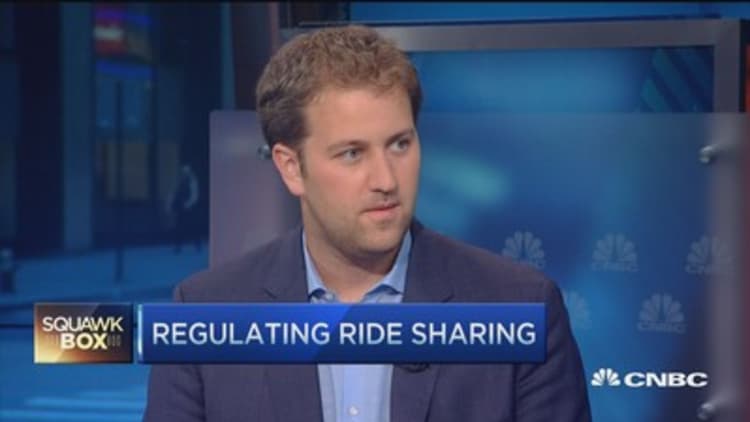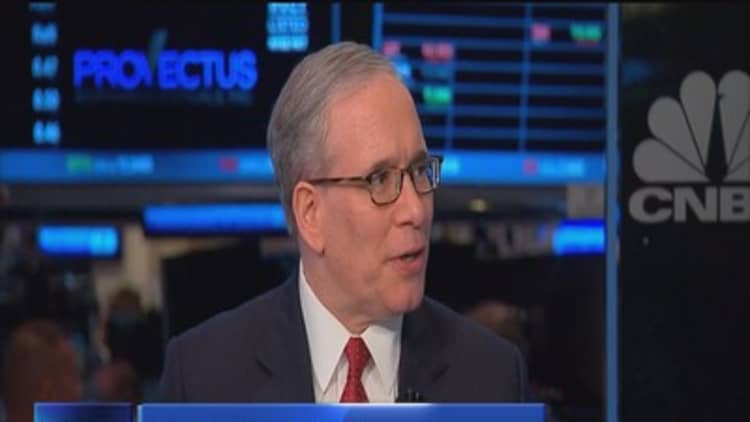
Uber on Wednesday stepped up its battle with New York Mayor Bill de Blasio, calling his plan to restrict ridesharing growth a sign of "contribution politics."
De Blasio cited such issues as increased congestion and pollution for his proposals, which would include a traffic study to be completed in the next year showing the impact of ridesharing companies. In the meantime, he wants to limit growth of for-hire vehicle companies to 1 percent.
The New York City Council is expected to consider the mayor's proposal this week.
"I think congestion is no doubt a problem in this city," Uber NYC General Manager Josh Mohrer said Wednesday. "[But] putting an artificial cap on supply to study congestion ... doesn't make any sense."
Read More
San Francisco-based Uber, with an estimated valuation of near $50 billion, has said the bill would cost New York nearly 10,000 jobs.
The company also claimed that de Blasio is trying to stifle free enterprise and innovation because he's in the back pocket of the Yellow cab industry.
"This cap ... isn't about progressive politics. This is about contribution politics. This has nothing to do with [de Blasio's] politics," asserted Mohrer, who said as a Democrat he supported the mayor during the election.
The mayor's office did not immediately respond to a CNBC request for comment, but it has dismissed those allegations—saying New York City is not alone in its concern about Uber, citing unrest and litigation in London and Paris, as well as the state of California.

New York City Comptroller Scott Stringer, who is expected to run for mayor in 2017, told CNBC's "Squawk on the Street" the Yellow cab industry has held a monopoly for too long.
"They have navigated government very well, and what happened is rather than invest in technology, these Yellow cab companies were investing in politicians," he said.
He declined to comment on the Yellow cab industry's more than $500,000 in campaign donations to the de Blasio administration.
He said the city should focus on bringing Yellow cab drivers up to speed in terms of using technology, while preserving the opportunities for immigrants and low-income workers afforded by companies like Uber.
Uber dispatches an estimated 25,000 cars on New York's streets, as opposed to 13,000 Yellow taxis.
Read MoreUber rival Lyft says we are growing faster
But Mohrer told CNBC's "Squawk Box" not all of Uber's cars are in service simultaneously. "On average we have fewer than 2,000 cars below 59th Street in Manhattan at any given time because drivers work on average 30 hours a week."
"The way to fix the congestion problem here is technology. Technology is the answer not the problem," he said.
Mohrer also said he supports a concept called congestion pricing.
It's an idea being pushed by a group called Move NY, which according to its website wants to make the city's toll system fairer by "reducing tolls that are too high and adding and restoring tolls where traffic is worst and transit options are plentiful."
"I am for a comprehensive solution to congestion rather than blaming one small piece of it," he said. "I think congestion pricing is an example of such a comprehensive solution."
—CNBC's Tom DiChristopher and AP contributed to this report.


